Born: Vienna, Austria, 14 April 1905
Occupation in country of origin: Upholsterer
Arrived in Britain as a refugee from Austria on 24 April 1939
Documents
B. Non-transmigrants Name of ship: Moreton Bay Steamship Line: Aberdeen and Commonwealth Line Names and descriptions of ALIEN passengers embarked at the port of Southampton Date of Departure: 1 July 1939 Where bound: Australia Contract ticket number: 5875 Port at which passengers have contracted to land: Sydney Names of passengers: Sonnenfeld, Mr Viktor; Mrs Gertrude Class: Cabin Ages of passengers - Adults of 12 years and upwards - Accompanied by husband or wife - Males 33 / Females 26 Children between 1 and 12: - Infants: - Last address in the UK: 63, Mansell Street, London E1 Profession, Occupation, or Calling of passengers: Farming / Housewife Country of last permanent residence: Foreign Countries / Foreign Countries Country of Intended Future Residence: Australia / Australia Country of which Citizen or Subject: Germany / Germany
Source: National Archives: Passenger Lists leaving UK 1890-1960.
Editor’s note: We are not allowed to reproduce National Archives (UK) images, but we are permitted to reproduce the material from them, as shown above.
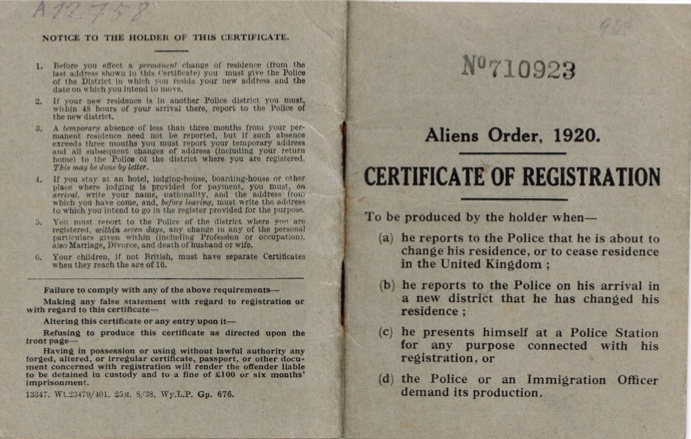
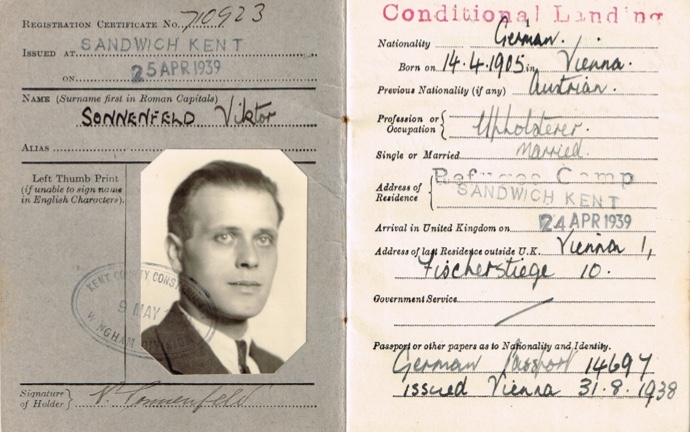
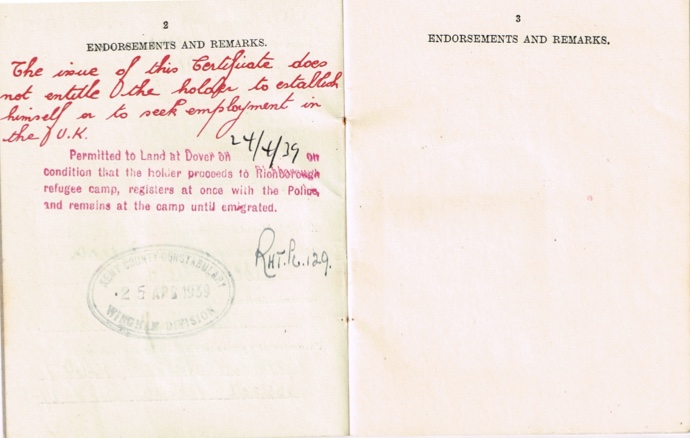
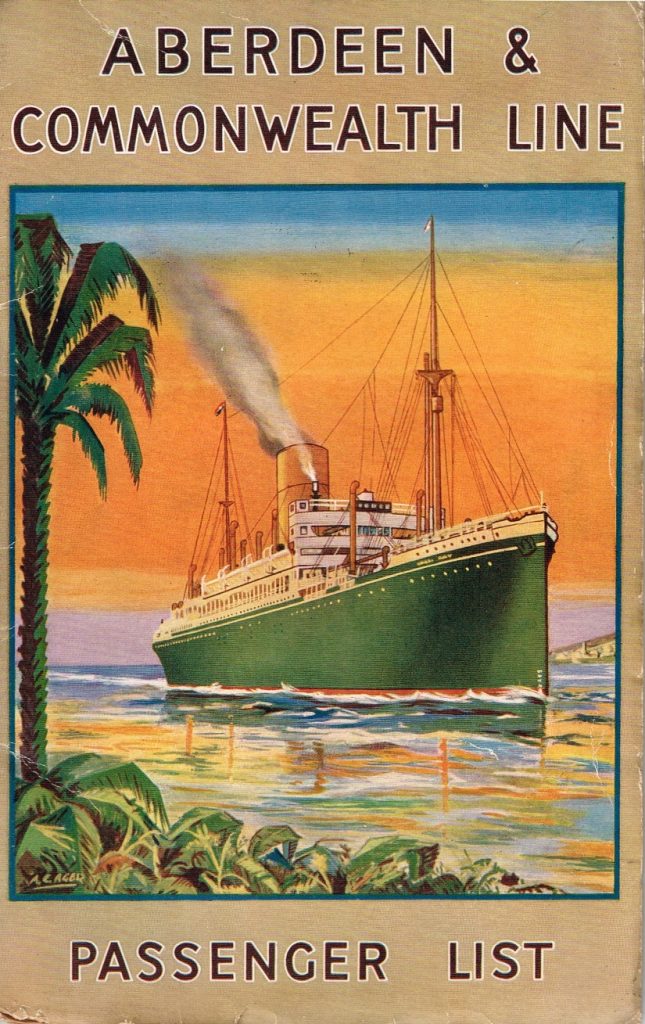
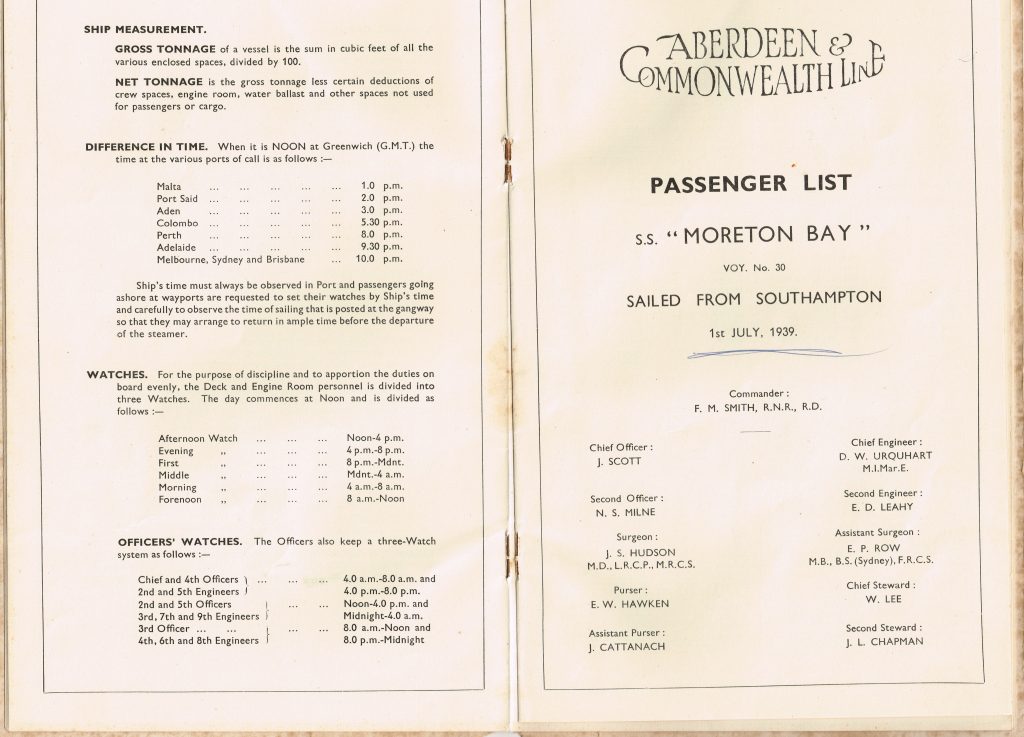
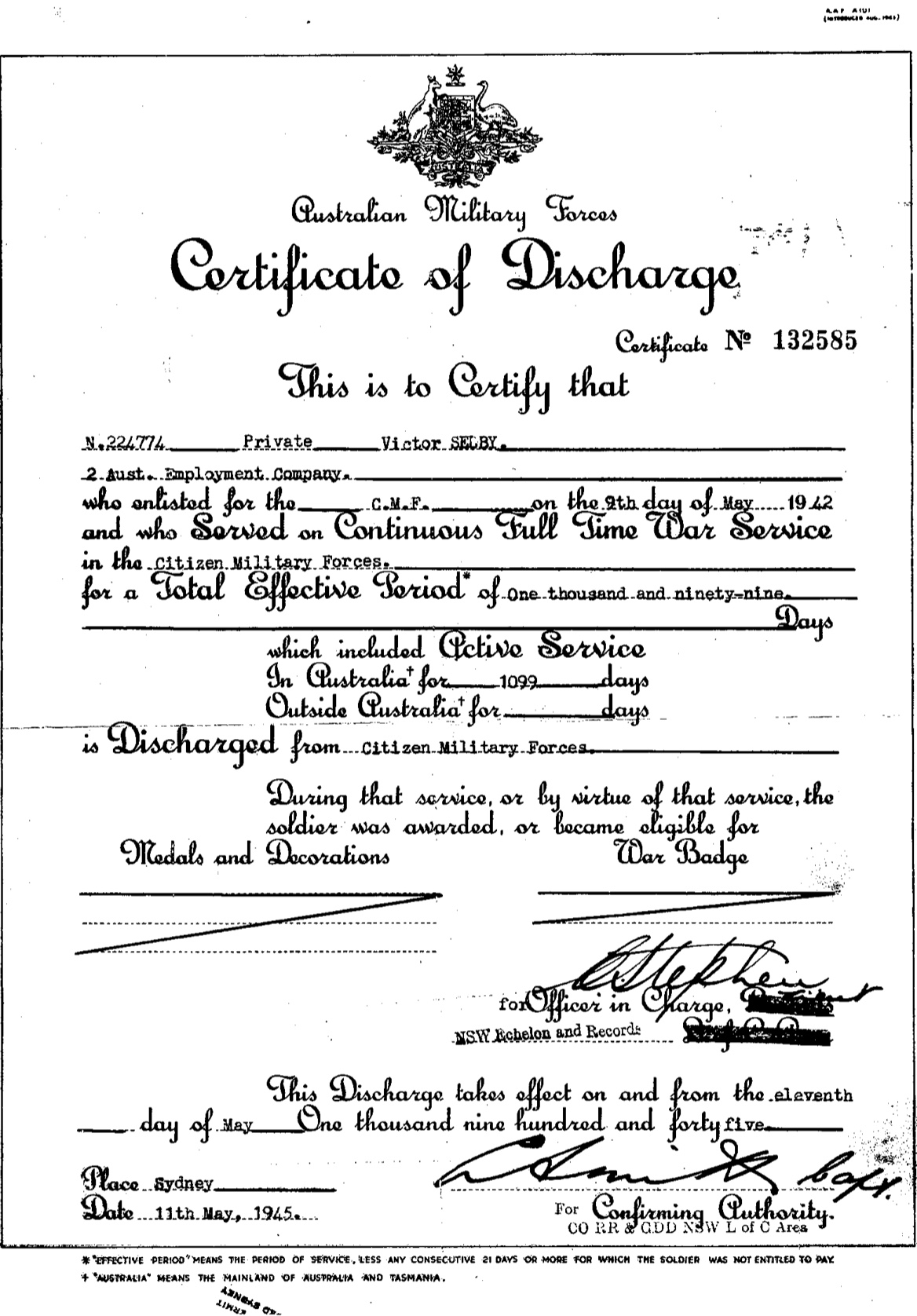
Documents submitted by the family of Viktor Sonnenfeld
Memories
Viktor and Gertrude (geboren Hauser) were married in 1937 in the Grand Synagogue of Vienna.
Unusually, this synagogue survived the war years. Its record books were used by the National Socialists to locate members of the Jewish population, and so they were preserved.
Thus, Viktor’s descendants have been able to view the original handwritten entries of grandparents’ birth records, and their wedding records; they are also fortunate to have in their collection the original certificate of marriage.
In Vienna, Viktor was working as an upholsterer, but following the annexation of Austria by Germany (the Anschluß), which began on 12 March 1938, his business was taken away and he was without work for a year. At the same time, the couple were forced from their apartment with only 24 hours’ notice; they had to move in with Gertrude’s parents, who were then living in central Vienna.
On 30 March 1939, Viktor obtained permission to travel to Australia as a tradesman, and although it is not yet known how he obtained a much-coveted place at Kitchener camp, the fact that he had this permission to emigrate elsewhere will have worked in his favour. Viktor left Vienna on 22 April 1939 and arrived at Dover on 24 April.
Gertrude also gained permission to leave Austria, travelling separately (the family think perhaps via Switzerland with her two brothers) to join Viktor in England; she was pregnant at the time, and her child – a daughter – was eventually carried safely to a new life in a free land. She was born in Sydney in November 1939.
For Viktor, then, Kitchener genuinely functioned as a transit camp, as intended, and he stayed there until departing with Gertrude on 1 July aboard the SS Moreton Bay, sailing via Malta, the Suez Canal, and Colombo to Australia, landing in Sydney on 31 July 1939.
The journey was not to be without its own immense pain and loss, however. Gertrude’s father had his business taken from him by the National Socialists: they recorded the value of the goods they stole, and he was forced to sign for their relinquished value. The family has documentary evidence of these details. Gertrude’s father was beaten to within an inch of his life, sent to a prison hospital, and died there in July 1939.
Gertrude received a telegram bearing this dreadful news whilst in transit between Perth and Melbourne, in the Southern Ocean: she remained unable to speak for four days.
When the couple finally arrived in Australia, Viktor joined the army, as did many of the Kitchener refugees in England. During his time in the army, the family believe that Viktor worked in the ‘stores’, loading boxes; he injured his back as a result of this work. His Australian Military Forces Certificate of Discharge is shown above.
German names were not popular at the time in Australia, and so, in common with many of these Jewish refugees, Viktor Sonnenfeld became Victor Selby (as can be seen on the army certificate, above). After the war Viktor returned to his trade as an upholsterer, and to this day his descendants live in Australia.
A beloved father and grandfather, Viktor is honoured here with the love of his family.
Submitted by the family of Viktor Sonnenfeld
Photographs
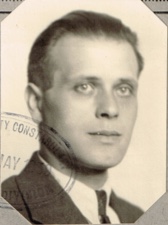
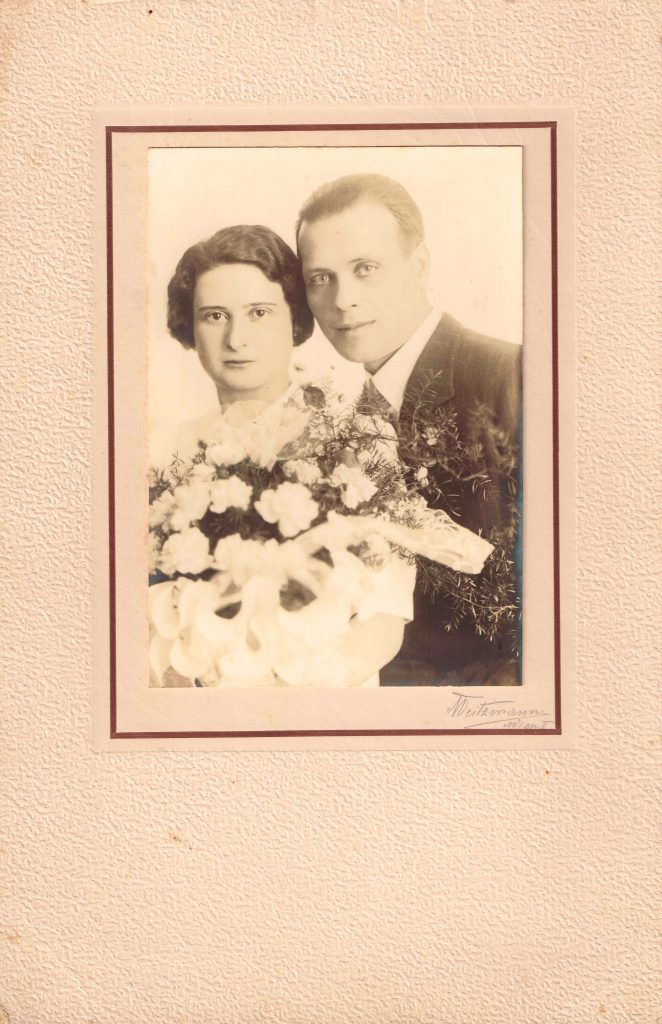
Submitted by the family of Viktor Sonnenfeld
